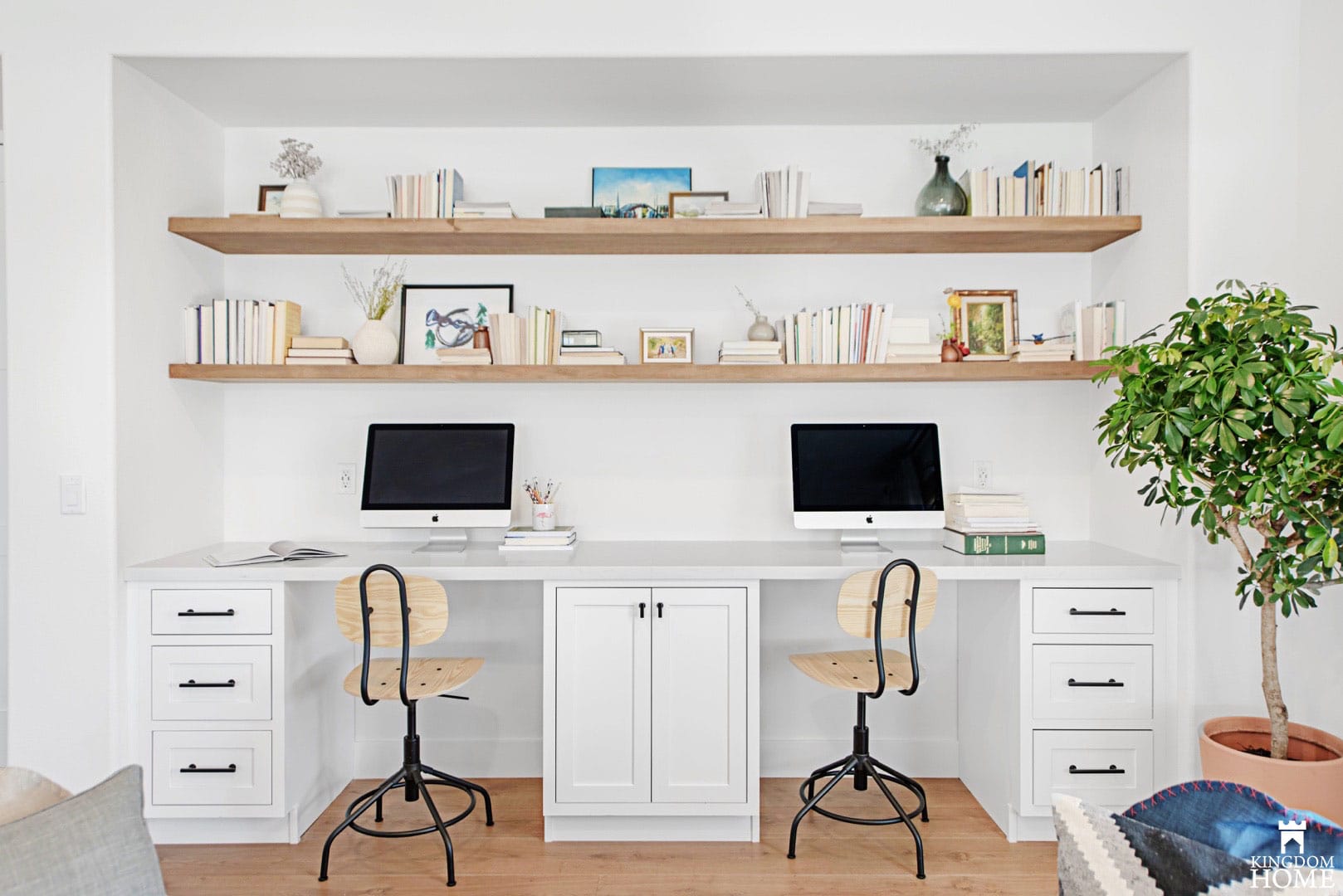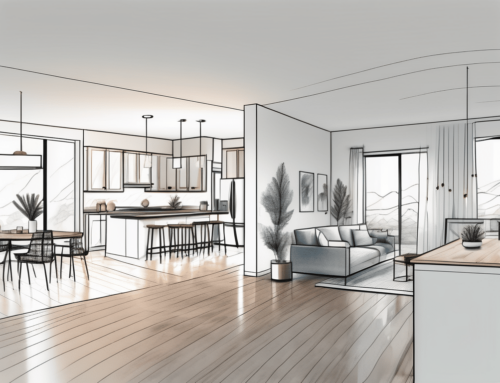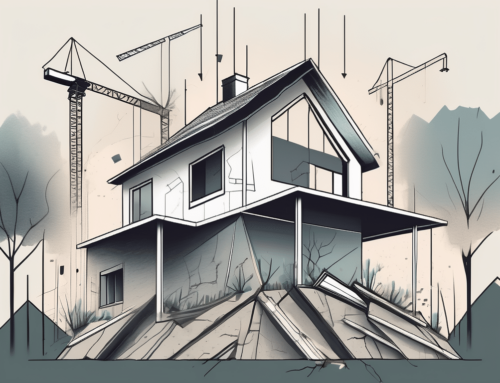Smart Home Design: Blending Modern Technology into Home Design

Smart home design involves understanding the main technologies involved, their benefits, the design process, and future trends.
In the ever-evolving world of home design, smart technology is no longer a luxury but a necessity. Modern homeowners seek homes that are not only aesthetically pleasing but also equipped with the latest technology to enhance their living experience.
This blog post will explore how technologies like automated lighting, smart thermostats, and advanced security systems can enhance both the functionality and aesthetic of modern homes and commercial spaces. Discover the latest innovations and learn how Kingdom & Co. can help you create a seamlessly connected environment that caters to convenience and style.
Key Components of Smart Homes
Smart home technology integrates IoT devices for remote or automatic control, enhancing convenience, energy efficiency, and security.
Smart home technology refers to the integration of Internet of Things (IoT) devices and automation systems that enable homeowners to control various aspects of their homes remotely or automatically. These technologies include smart lighting, security systems, climate control, and more. The goal is to enhance convenience, improve energy efficiency, and provide superior security.
The main components of smart home technology include smart lighting, security systems, climate control, entertainment systems, smart appliances, voice assistants, smart plugs and switches, smart blinds and curtains, and home automation hubs.
Smart Lighting
Smart lighting systems offer an array of benefits that go beyond mere illumination. These systems can be controlled via smartphone apps or voice commands, providing unmatched convenience and flexibility. They can also be programmed to turn off when not in use, significantly reducing energy consumption.
Security Systems
Advanced security systems are a cornerstone of smart home technology. These systems include sophisticated security cameras, smart locks, and motion detectors that provide real-time monitoring and alerts. Integration with alarm systems ensures that any breach triggers an immediate response, including notifications to emergency services.
Climate Control
Smart thermostats revolutionize home climate control by learning your preferences and adjusting the temperature for optimal comfort and energy efficiency. These devices have learning capabilities that adapt to your schedule, ensuring your home is always at the perfect temperature.
Entertainment Systems
Entertainment systems in smart homes offer immersive experiences through advanced technology. High-quality audio is delivered by smart speakers and integrated audio systems, transforming your home into an entertainment haven. Multi-room audio systems even enable playing music throughout the house or in specific rooms.
Smart Appliances
Smart appliances streamline daily tasks and add convenience to your home. They are designed to optimize energy use, providing insights into consumption and helping you save on utility bills. For example, a smart refrigerator can suggest recipes based on available ingredients while remote operation allows you to pre-heat the oven or start the dishwasher while away.
Voice Assistants
Voice assistants like Amazon Echo, Google Home, and Apple HomePod are essential components of a smart home. They enable hands-free control of various functions. With voice control, you can manage lighting, climate, security, and entertainment with simple commands. These devices integrate seamlessly with other devices, providing a unified control platform.
Smart Plugs and Switches
These devices turn regular appliances into smart devices, allowing remote control and automation. For instance, remote control enables turning appliances on or off from anywhere using a smartphone app. Energy monitoring tracks the energy usage of connected devices while scheduling features to set appliances to turn on or off automatically.
Smart Blinds and Curtains
Automated window treatments can be programmed to open and close based on time of day or sunlight levels. This allows you to remotely adjust blinds and curtains from anywhere using a smartphone app or schedule programs that open and close blinds at specific times of the day and night, or based on the weather to maintain ideal indoor temperatures.
Home Automation Hubs
Home automation hubs provide a central interface for integrating and controlling all smart devices. They enhance security by monitoring and controlling systems from one place. For example, automation routines trigger multiple devices based on various conditions, ensuring compatibility and smooth operation.
Benefits of Smart Home Systems
Smart home systems offer convenience, energy efficiency, enhanced security, customization, improved accessibility, remote monitoring, and contribute to health and wellness in your home.
Understanding the different types of interior design services is essential for achieving the perfect balance of luxury, functionality, and aesthetic appeal in any space. Whether you're embarking on a high-end residential project or a commercial design, the expertise and creativity of professional designers can transform your vision into reality.
At Kingdom & Co., we offer personalized custom home remodels and renovation services that cater to the most discerning tastes and the highest standards of quality. Our team of experienced designers and craftsmen work closely with you to breathe new life into your home, ensuring every detail reflects your unique style and preferences. From modernizing outdated interiors to transforming entire homes, we deliver unparalleled quality and craftsmanship. Call us today at (702) 779-3778 for a personalized design consultation and explore our portfolio of previous projects.
Convenience
One of the most significant benefits of smart home systems is the convenience they offer. Whether you're at home or away, you can manage your home through a smartphone app or a voice assistant like Amazon Echo or Google Home. This level of control makes everyday tasks easier and more efficient.
Energy Efficiency
Smart home systems are designed to optimize energy use, reduce waste, and lower utility bills. For example, smart thermostats learn your schedule and adjust the temperature accordingly while smart lighting can be programmed to turn off when rooms are unoccupied. This contributes to a greener environment and substantial financial savings over time.
Security
With advanced security cameras, smart locks, and motion detectors, you can have peace of mind while monitoring and controlling your home’s security from anywhere. You’ll receive real-time alerts if there is any suspicious activity, view live feeds from your security cameras on your smartphone, and remotely lock or unlock your doors to let in guests or service providers.
Customization
Smart home systems allow for a high degree of customization, enabling you to tailor your home environment to your exact preferences. You can personalize lighting conditions to fit your style, adjust climate settings for different zones in your home to ensure maximum comfort, and personalize music for every room with smart entertainment systems.
Accessibility
Smart home technology can significantly improve accessibility for individuals with disabilities. Voice-controlled devices and automated systems provide easy control over home functions, allowing individuals to manage their environment independently. This can greatly enhance the quality of life for those with mobility challenges or other disabilities.
Remote Monitoring
The ability to monitor your home from anywhere in the world is a significant advantage of smart home systems. Whether you're on vacation, at work, or running errands, you can keep an eye on your home through your smartphone. This provides an added layer of security and peace of mind, knowing that you can always stay connected to your home.
Designing Your Smart Home in 2024
Smart home design requires early planning and collaboration with tech specialists, balancing technology with aesthetics, and ensuring seamless integration for cohesive, adaptable, and visually appealing results.
Early Planning and Collaboration
The key to successful smart home design lies in meticulous planning and integration. Engaging with tech specialists during the initial design phase ensures that all necessary wiring and infrastructure are in place. This prevents costly retrofits and allows for a cohesive integration of technology into the overall design.
Balancing Technology with Aesthetics
While technology offers numerous benefits, it is essential to maintain the aesthetic integrity of the home. Opt for devices and systems that complement the interior design and match your interior style. Many smart devices are available in various colors and materials, allowing them to blend seamlessly into any decor.
Seamless Integration
For a polished and aesthetically pleasing smart home, it is essential to hide wiring and control panels to maintain a clean look. Additionally, select devices with similar design elements to create cohesion. Ensure that smart devices are adaptable and can be easily updated or replaced as technology evolves, maintaining both functionality and style over time.
Future Trends in Smart Home Design
The future of smart home design includes AI, machine learning, and sustainable technologies for more integrated systems, energy efficiency, and health-focused environments.
The future of smart home design is exciting, with new technologies emerging regularly. Look out for advancements in AI, machine learning, and sustainable technologies that will further enhance smart homes. Innovations such as AI-powered home assistants, advanced home automation systems, and smart health monitoring devices are set to revolutionize the way we live.
Expect more integrated systems that offer seamless control over all aspects of your home. The focus will be on creating truly intuitive and responsive environments that adapt to your lifestyle. Homes will become more energy-efficient, with smart systems that optimize resource use and reduce waste. Health and wellness will also be a major focus, with smart homes providing environments that promote physical and mental well-being.
Modernize Your Home Today With Smart Solutions
Blending modern technology into home design enhances comfort, security, and energy efficiency, and our team specializes in integrating smart systems into luxury spaces.
Blending modern technology into home design is essential for creating a luxurious and convenient lifestyle. You can enhance comfort, security, and energy efficiency by integrating smart home systems while maintaining aesthetic integrity. Embrace the future of home design and let us help you create a smart home that perfectly suits your needs.
With years of experience in luxury interior design, we specialize in creating interiors that are both beautiful and functional. Our team of designers and technology specialists work closely with clients to bring your vision to life. We understand the unique challenges and opportunities of integrating smart technology into high-end residential and commercial spaces. Call us today at (702) 779-3778 to schedule a consultation and discover how we can transform your home into a luxurious, smart living space.































